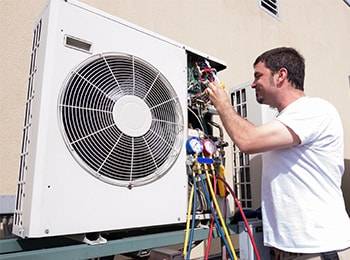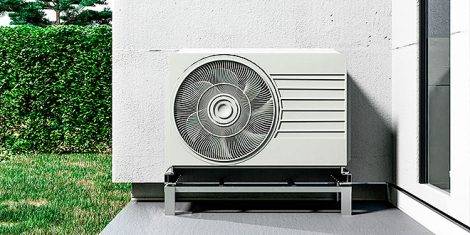
Crank up the AC, right? It’s the magic button for blissful coolness on a scorching day. But what if we told you your icy comfort comes at a surprising cost? Today, we’re diving into the shocking realities of air conditioner energy consumption. From hidden energy guzzlers to simple fixes that save you money and the planet, this post will make you rethink your cool zone strategy. Get ready for 5 eye-opening facts (and solutions!) that will keep you comfy and eco-conscious!
Factors That Increase Air Conditioning Energy Consumption
Understanding what leads to high energy consumption during the cooling season is essential for finding effective ways to reduce it. Here are some common factors that can significantly impact how much energy your air conditioning system uses:
1. Improper Insulation and Sealing
One of the primary reasons for excessive energy use is poor insulation and sealing of buildings. Inadequate insulation allows cool air to escape and warm air to enter, forcing air conditioning systems to work harder and longer to maintain a comfortable indoor temperature. Ensuring your home or office is properly sealed and insulated can dramatically decrease energy consumption.
2. Outdated or Inefficient AC Units
Older air conditioning units are often less efficient than modern systems designed with energy savings in mind. Upgrading to a newer, ENERGY STAR® certified model can significantly reduce energy usage. These units use advanced technology to cool more effectively while consuming less power.
3. Incorrect Sizing of AC Units
An air conditioner that is too large or too small for the space it’s intended to cool can lead to inefficient operation and higher energy costs. A unit that’s too large will cycle on and off frequently, failing to dehumidify the air properly. Conversely, a unit that is too small will run continuously and struggle to cool the space. Proper sizing is key to maximizing efficiency and comfort.
4. Lack of Regular Maintenance
Neglecting regular maintenance can also lead to increased energy consumption. Dirty filters, coils, and fans can restrict airflow and reduce a system’s efficiency. Scheduling regular check-ups can ensure your system runs as efficiently as possible.
5. Incorrect Thermostat Settings
Setting the thermostat too low can cause your air conditioning system to work harder than necessary, leading to increased energy consumption. Adjusting your thermostat to a comfortable but higher setting can help reduce energy usage without sacrificing comfort.
By addressing these factors, you can significantly reduce the energy consumption of your air conditioning system, resulting in lower utility bills and a reduced environmental impact. In our next section, we’ll explore the impact of air conditioning energy consumption on your wallet and the environment, highlighting the importance of adopting more energy-efficient practices.

Impact on Your Wallet and the Environment
The consequences of high air conditioning energy consumption extend beyond the immediate discomfort of a hot summer day; they have tangible impacts both on personal finances and our planet’s health. Understanding these impacts can motivate us to seek more sustainable cooling solutions.
Financial Implications
One of the most direct impacts of high air conditioning energy consumption is on your utility bills. During peak summer months, when the reliance on air conditioning increases, households and businesses can see a significant spike in their energy costs. This surge is primarily due to the intensive energy requirements of running AC units, especially if they are inefficient, improperly maintained, or incorrectly sized. By optimizing air conditioning use and investing in energy-efficient solutions, it’s possible to achieve substantial savings, reducing summer energy bills by up to 20-50%.
Environmental Consequences
Beyond the hit to your wallet, the excessive use of air conditioning has broader environmental implications. High energy consumption contributes to increased greenhouse gas emissions, particularly when the electricity is generated from fossil fuels. These emissions play a significant role in climate change, exacerbating the very heat waves that lead to increased air conditioning use in the first place. Additionally, the increased demand for electricity during summer peaks can strain the power grid, leading to more frequent use of high-emission backup power plants.
The Role of Energy Efficiency
Adopting more energy-efficient air conditioning systems and practices not only mitigates these financial and environmental impacts but also contributes to a more sustainable future. Energy-efficient air conditioning units, such as those with ENERGY STAR® certification, use advanced technologies to cool effectively while consuming less power. This not only lowers energy bills but also reduces the environmental footprint of cooling our homes and workplaces.
Innovative Solutions to Reduce Consumption
In the quest to minimize air conditioning energy consumption, there are several innovative solutions and practices that can significantly impact both efficiency and comfort. Embracing these solutions not only helps in reducing utility bills but also supports environmental sustainability.
High-Efficiency Air Conditioning Units

Modern air conditioners are designed with efficiency in mind. Look for units with high Seasonal Energy Efficiency Ratios (SEER) and ENERGY STAR® certifications. These models are engineered to provide maximum cooling with minimal energy use, incorporating features like variable speed compressors and advanced fan designs. Upgrading to a high-efficiency unit can drastically reduce energy consumption and costs.
Ductless Mini-Split Systems
For homes without traditional ductwork or for room-specific cooling needs, ductless mini-split systems offer an efficient and flexible alternative. These systems provide targeted cooling, reducing energy waste associated with cooling unoccupied spaces. Their high SEER ratings and precise temperature control capabilities make them an energy-efficient choice for any setting.
Smart Thermostats
Smart thermostats offer unprecedented control over your cooling system, allowing you to adjust settings remotely and set schedules to avoid unnecessary cooling. These devices can learn your preferences and habits, automatically adjusting to ensure comfort while optimizing energy use. By maintaining a more consistent indoor temperature, smart thermostats can significantly lower energy consumption.
Regular Maintenance and Upgrades
Keeping your air conditioning system well-maintained is crucial for ensuring efficiency. Regular servicing, including cleaning filters and coils, checking refrigerant levels, and inspecting electrical components, can prevent energy waste. Additionally, retrofitting older systems with newer, more efficient parts can improve performance without the need for a full replacement.
Utilizing Natural Ventilation and Shading
Complementing your air conditioning with natural cooling methods can further reduce energy use. Open windows during cooler parts of the day and use fans to circulate air. Installing shades or blinds can minimize heat gain from sunlight, reducing the need for air conditioning. Landscaping with trees and shrubs can also provide natural shading and cooling for your property.
Practical Tips for Homeowners and Businesses

Reducing air conditioning energy consumption doesn’t just rely on having the right technology; it also depends on adopting smart habits and making minor adjustments to your daily routines. Here are practical tips that can help both homeowners and businesses minimize energy use while maintaining comfort during the hot summer months:
1. Optimize Thermostat Settings
Aim to set your thermostat at the highest comfortable temperature. Each degree above your typical setting can save about 3-5% on your cooling costs. Consider setting it to 78°F (26°C) when you’re at home and higher when you’re away.
2. Use Ceiling Fans to Your Advantage
Ceiling fans can create a cooling effect, allowing you to raise the thermostat setting to about 4°F with no reduction in comfort. Remember, fans cool people, not rooms, so turn them off when the room is unoccupied to save energy.
3. Seal Leaks and Insulate
Check for and seal leaks around doors, windows, and other openings. Proper insulation in walls, attics, and basements can prevent heat gain and help maintain a consistent indoor temperature, reducing the burden on your air conditioning system.
4. Schedule Regular Maintenance
Ensure your air conditioning system is serviced at least once a year. Regular maintenance keeps the system running efficiently, addressing any potential issues before they lead to increased energy consumption or costly repairs.
5. Upgrade to Energy-Efficient Lighting
Incandescent bulbs produce a lot of heat. Switching to LED or CFL bulbs can reduce the heat generated inside your home or office, lessening the need for air conditioning.
6. Use Window Treatments to Prevent Heat Gain
Close blinds, shades, or curtains during the hottest parts of the day to block direct sunlight and reduce heat gain through windows. This simple step can significantly reduce the amount of work your air conditioner needs to do.
7. Consider an Upgrade
If your air conditioning unit is old or underperforming, consider replacing it with a more energy-efficient model. Look for systems with a high SEER rating and features like programmable thermostats for better energy management.
Stay Cool, Save More This Summer

Embrace a smarter way to beat the heat! 🌞 With Carey & Walsh, Inc., unlock energy-efficient cooling solutions that promise comfort without the high costs. Ready to optimize your summer cooling? Let’s make this season both enjoyable and eco-friendly. Connect with us today and take the first step towards a cooler, greener tomorrow. 🌱🏡


